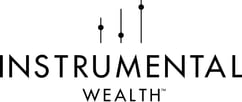5 End of Year Tax Planning Strategies
As the year draws to a close, there are potentially strategic tax planning opportunities for you to consider to put yourself in an optimal tax situation for 2024.
While not all will apply to every individual, here are five ideas to consider before December 31st.
5 End of Year Tax Planning Strategies
Intentional Tax-Loss Harvesting
David and Drew talk through tax loss harvesting as a potential strategy for investors.
Tax-loss harvesting presents a powerful opportunity to offset capital gains and potentially reduce your tax liability. This investment strategy involves mindfully selling investments at a loss to offset capital gains realized elsewhere in your portfolio.
Key benefits include:
- Offsetting realized capital gains from other investments
- Reducing ordinary income by up to $3,000 annually
- Carrying forward unused losses to future tax years
- Opportunity to reposition portfolios away from underperforming assets
Remember to be mindful of wash sale rules - avoid repurchasing substantially identical securities within 30 days of selling to maintain the tax loss benefit.
Maximizing Retirement Plan Contributions
As year-end approaches, reviewing and maximizing retirement plan contributions can provide significant tax advantages while bolstering your retirement savings:
- 401(k)/403(b) contribution limit: $23,000 for 2024 ($30,500 if age 50+)
- IRA contribution limit: $7,000 ($8,000 if age 50+)
- For business owners or self-employed: Consider SEP IRA or Solo 401(k) contributions ($69k limit for 2024)
- Health Savings Account (HSA): $4,150 individual/$8,300 family (+$1,000 catch-up at 55+)
Consider accelerating contributions to reach these limits before December 31st to maximize tax advantages for the current year.
Roth Conversion Considerations
With the December 31st deadline approaching, now is the time to evaluate whether a Roth conversion makes sense for your situation. Converting traditional IRA assets to a Roth IRA can provide tax-free growth potential and tax-free withdrawals in retirement.
Several key factors should guide your decision. You'll want to compare your current tax rates against expected future rates to determine optimal timing. Consider whether you can pay the conversion taxes using non-retirement assets, as this preserves more money for future growth.
Your legacy planning objectives may also influence this choice. Be aware that a conversion could affect your Medicare premiums and other income-based considerations. Remember that Roth conversions require a five-year holding period before allowing tax-free withdrawals.
Required Minimum Distributions (RMDs)
For those over 72, taking Required Minimum Distributions (RMDs) by December 31st is critical to avoid severe penalties. Key points to remember:
- Failure to take RMDs results in a 25% penalty on the amount not withdrawn
- Calculate RMDs separately for each retirement account
- First-year RMD can be delayed until April 1st of the following year (though this results in two RMDs that year)
- Consider QCDs (discussed below) to satisfy RMD requirements while achieving charitable goals
Strategic Charitable Giving
Charitable contributions can both fulfill philanthropic goals and provide tax benefits. Consider these giving strategies and discuss with your financial advisor:
Qualified Charitable Distributions (QCDs)
Qualified Charitable Distributions (QCDs) offer a tax-efficient giving option for individuals aged 70½ or older. Through QCDs, you can transfer up to $100,000 annually directly from your IRA to qualified charities. These distributions satisfy your required minimum distribution (RMD) obligations while excluding the transferred amount from your taxable income.
Donor-Advised Funds (DAFs)
Donor-Advised Funds (DAFs) provide a strategic approach to charitable giving that offers immediate tax benefits with long-term flexibility. When you contribute to a DAF, you receive an immediate tax deduction while maintaining the ability to distribute the funds to charities over time. This vehicle is particularly valuable for donating appreciated securities, as it helps avoid capital gains taxes. DAFs also enable you to bunch multiple years of charitable giving into a single tax year for maximum tax efficiency.
Appreciated Securities
When considering appreciated securities for charitable giving, donating long-term appreciated stocks directly to charities offers dual benefits. This strategy allows you to claim a tax deduction for the full fair market value of the securities while completely avoiding capital gains taxes on the appreciation. This approach maximizes both the value of your charitable gift and your tax benefits.
Your Next Steps: EOY Tax Planning
Effective tax planning requires carefully evaluating your complete financial picture and long-term objectives while working with qualified advisors to develop a comprehensive plan that maximizes available tax advantages before year-end deadlines.
While tax laws can change year to year, regular review and updates to your planning approach help ensure you're optimizing opportunities while maintaining compliance with current regulations.
Have a question about your specific situation or want to talk to one of our team members here at Instrumental Wealth? Schedule a meeting here.
We look forward to speaking with you!
Not an Offer: This document does not constitute advice or a recommendation or offer to sell or a solicitation to deal in any security or financial product. It is provided for information purposes only and on the understanding that the recipient has sufficient knowledge and experience to be able to understand and make their own evaluation of the proposals and services described herein, any risks associated therewith and any related legal, tax, accounting or other material considerations. To the extent that the reader has any questions regarding the applicability of any specific issue discussed above to their specific portfolio or situation, prospective investors are encouraged to contact Instrumental Wealth or consult with the professional advisor of their choosing.
Instrumental Wealth, LLC (“Instrumental Wealth”) is an SEC registered investment adviser located in Florida. Registration does not imply a certain level of skill or training. Instrumental Wealth may only transact business in those states in which it is notice filed or qualifies for an exemption from notice filing requirements. Information about Instrumental Wealth (inculcating its services, fees, and registration status) is available on the SEC’s IAPD website at www.adviserinfo.sec.gov. There is no guarantee that the views and opinions expressed in this presentation will come to pass. Advisory services are only offered to clients or prospective clients where Instrumental Wealth and its representatives are properly licensed or exempt from licensure. Past performance is no guarantee of future returns. Investing involves risk and possible loss of principal capital. No advice may be rendered by Instrumental Wealth unless a client service agreement is in place.

